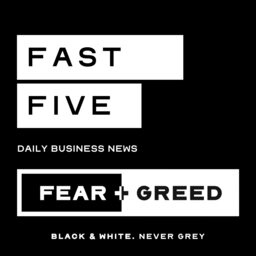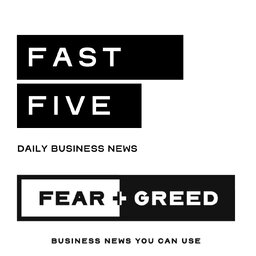Fast Five | 30 Nov - 1 Dec 2024
Sean Aylmer and Michael Thompson go head to head to decide on the top business stories of the week.
In 1 playlist(s)
Fast Five by Fear and Greed
Five business news stories in five minutes, with journalists Sean Aylmer and Michael Thompson. When …Social links
Follow podcast
Recent clips

Gen X’s 'dirty fantasy': the four-day work week
06:12

Dividend investing: How to pick quality income stocks
06:07

Fast Five | 16 Jan 2026
05:56
 Fast Five by Fear and Greed
Fast Five by Fear and Greed